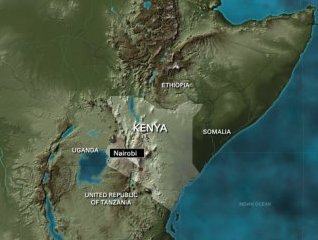 Kenyan counterterrorism sources are looking at a Norwegian citizen of Somali descent as a possible suspect in the Westgate mall attack last month, the sources told CNN on Friday.
Kenyan counterterrorism sources are looking at a Norwegian citizen of Somali descent as a possible suspect in the Westgate mall attack last month, the sources told CNN on Friday.
The Norwegian citizen is believed to have ties to Mohamed Abdikadir Mohamed, known as Ikrima, who is regarded as one of the most dangerous commanders in the Somali terror group Al-Shabaab.
Norwegian intelligence services are in Kenya investigating Ikrima and the Norwegian citizen, the Kenyan sources said, and have also spoken to the latter's sister in Norway.
Norwegian authorities have not yet released the Norwegian citizen's name.
Kenyan authorities suspect Ikrima of involvement with the Westgate mall attack.
Al-Shabaab claimed responsibility for the bloody four-day siege at the upscale mall in Nairobi, where at least 67 people died.
U.S. officials said Ikrima was the target of a raid earlier this month by U.S. Navy SEALs on an Al-Shabaab compound near the town of Baraawe in Somalia. It's believed that he escaped after the U.S. troops came under heavy fire.
A Kenyan intelligence dossier seen by CNN alleges Ikrima's involvement with Briton Samantha Lewthwaite, a terror suspect known as the "White Widow," in a foiled Mombasa attack in 2011 with Jermaine Grant, a fellow British citizen currently held in Mombasa on terror charges.
Kenyan intelligence sources say that Ikrima, who speaks six languages and grew up in Kenya, is the main "point person" between al Qaeda in Somalia and al Qaeda in the Arabian Peninsula, and that he has helped pinpoint Kenyan targets.
Recruiting operatives in the West?
Morten Storm, a former informant who has worked for several Western intelligence agencies, has told CNN that he developed a close relationship with an Al-Shabaab figure called Ikrima between 2008 and 2012. He said he is confident that it's the same person who was targeted by U.S. forces.
Storm, who is Danish, described Ikrima as a Somali-Kenyan Al-Shabaab operative who had spent time in Norway. He said that Ikrima made clear to him via e-mail that he was ready to send recruits from the West back home from Somalia to launch attacks.
Norwegian journalist Bent Skjaerstad told CNN his sources have confirmed that Ikrima had indeed spent time in Norway and had tried to recruit for Al-Shabaab in Europe. Skjaerstad, who reports on security and terrorism for TV2, said Ikrima had lived there between 2004 and 2008. He had failed to gain asylum status but had been given Norwegian travel papers.
Skjaerstad told CNN that according to his sources, Ikrima had traveled to Somalia while living in Norway and had used about a dozen aliases.
Al-Shabaab in Norway
The possible involvement of the Norwegian citizen in the Westgate mall attack has highlighted concerns about the widening reach of the Al-Shabaab group outside Somali borders.
Stig Hansen, a security expert based in Norway and author of the book "Al-Shabaab in Somalia," told CNN that if the Norwegian suspect is who he believes him to be, he lived in a small town in Norway but had connections with a wider group, not all of Somali origin.
He came to Norway at age 8 or 9 and stayed for a couple of years, during which time he gained Norwegian citizenship, Hansen said. He later returned to Somalia.
Al-Shabaab became quite popular among some Somali community groups in Norway from 2007 to 2009, Hansen said, "because they were wrongly seen as some kind of national resistance group."
Observers noticed contradictions between what the group said in its English- and Arabic-language messaging, he said, which contributed to ignorance within the diaspora about its real nature.
"But the terrorist attacks inside of Somalia made it easier for the wider ethnic Somali community to see that this was really a terrorist organization, and it distanced itself," he said, making it less popular now.
However, this development brought its own problems, Hansen said, and not just in Norway.
"What you have to look out for, also in the United States and the United Kingdom and all these other Scandinavian countries, are these small, small networks that are in one sense detached also from the Somali community leaders -- radicalized groups of youths and radical preachers, sheikhs, that go traveling around the various countries to try to incite," he said. "That's what we have to watch these days."
CNN's Nima Elbagir reported from Nairobi and Laura Smith-Spark wrote in London. CNN's Atika Shubert, Tim Lister and Paul Cruickshank contributed to this report.
Portland and Seattle
Free Subscription to Breaking News
Free Subscription to Breaking News






















































































































































































































































































































































